Interview: Nancy Wilson from Heart Talks About ‘You and Me’
Nancy Wilson, Heart‘s guitar powerhouse is excited about her very first solo album, You and Me. We got her on the line to talk about everything – including how it was made, the history behind it. And the people, places and times that finally made it happen.
You can listen to the interview here, or read a transcript below.
MD: It’s called You and Me and it’s yourfirst official studio solo album. So first of all, tell me why you’ve decided at this juncture, at this point in your life and career, to do that, to make your first solo studio album.
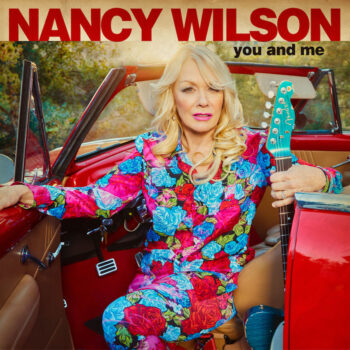 NW: I’ve always, completely always, planned to do a real solo album. I released a live album with some original stuff and some covers back in ’99 called Live at McCabes Guitar Shop. It was never really intended to be a true solo album. But people have always asked me why. Gonna do a real solo album some day? Or an acoustic guitar instrumental thing?
NW: I’ve always, completely always, planned to do a real solo album. I released a live album with some original stuff and some covers back in ’99 called Live at McCabes Guitar Shop. It was never really intended to be a true solo album. But people have always asked me why. Gonna do a real solo album some day? Or an acoustic guitar instrumental thing?
And I’m kind of like, well, I can do all of the above, I’ve just been so busy with Heart for so very long, since I was a kid. And we’ve toured a lot. But being kind of shut in with the shut down, and not packing a bag and not going on the road, and not playing on every stage that had electricity for a change, it was kind of a blessing in disguise. I’d had this new place where we moved up to Northern California, really nice house and a place where I could have a studio in a separate building from the actual house. So I was able to get my stuff from the last Heart tour – a lot of my gear came here and I put it all up in my new space.
I’ve never had a real studio space before in my life for some odd reason. I have no idea why. I guess we just paid for studio time to record stuff in proper studios. And I’m a really tech resistant type person. So, I never wanted to learn the tech of running a tape machine or digital recording device of any kind.
But I got an interface at my new space here and a girlfriend who knows how to run it. So, I didn’t have to think about it. I was like ‘OK, I want to do this today and I want to get a tempo here and give me click and that’s too fast, that’s too slow.’ So, I just build a piece of a song onto an interface, a six track interface. And then I would send it to my pal in Denver who is a friend of house mixers, a jack of all trades.
He’s my first engineer and I’d send it to him. He’d throw it in the drop box and send it to Seattle to my bass player, my drummer, my keyboard player, my guitar player. All those guys are from Seattle so they would pass the files around and then send each part back to me to approve or make changes – and then back through Denver, back to Seattle, back to me from Denver. So, all this was happening, none of us were in the same room at the same time. But the fact that we’ve all played together quite a bit is I guess the reason why I think it sounds like we were in the same room at the same time. It all worked out pretty well.
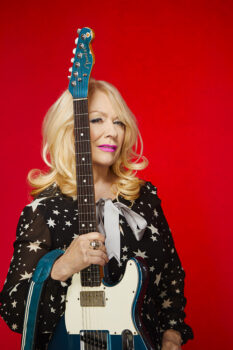 MD: It’s interesting because I’ve had this discussion with other folks and it seems like they’re discovering what they can do on their own at home without a proper studio to go to. And of course, you have a history of owning a studio, The Bad Animals, studio which was very influential back in the day, especially in the 90’s.
MD: It’s interesting because I’ve had this discussion with other folks and it seems like they’re discovering what they can do on their own at home without a proper studio to go to. And of course, you have a history of owning a studio, The Bad Animals, studio which was very influential back in the day, especially in the 90’s.
NW: Yeah, we kind of actually made a big mistake and decided that we wanted to invest in a studio. It’s like a restaurant business. You don’t want to really do that but we did it anyway and kind of wild-eyed optimistic kind of move to make but the studio itself is just gorgeous and it’s been a home for so many amazing music projects. A lot of the 90’s Seattle explosion bands were there.
MD: Super Unknown and Mirrorball and Vitology. That’s pretty impressive.
NW: A lot of folks did a lot of great music in there so I guess it was worth the sacrifice of losing…
MD: Better you than me.
NW: Oh yeah.
MD: So, the album opens with a tune called You and Me which I found, it reminded me instantly of Dog and Butterfly for some reason and I’m wondering if this is definitely not a guitar album. It’s more of a vocal and a song writers’ album. Is that what you had in mind?
NW: Well yeah, I think so. I mean, you know I’ve been kind of collecting inspiration and lyrics in my notes in my phone and working for a long time over the years too with a wonderful collaborator Sue Ennis, who worked on Dog and Butterfly with us. There is a connection there. She also teaches a song-writing class and a music business class in Seattle area so she’s a really good sounding board for me just to bounce ideas off of and to work on song ideas with.
So, she had a mum song, I had a mum song, we grew up together so both of our mums were friends with each other. They’re very different kind of ladies but when she lost her mum, she wrote this really pretty song called Follow Me which was the basic song for You and Me which incorporated a lot of my own lyrics for my own mum that we kind of made a hybrid song out of.
So, I thought it was really cool.
One day I woke up after dreaming that I’d had this great conversation with my mum and that’s kind of what the song speaks to. It’s like hey, good to see you, thanks for your protection from above. Kind of like the connective tissue between your DNA but in a zero-gravity kind of space like in a dream.
So, that whole concept really drew me in to making a song about it because it’s like when someone in your family that you’ve lost but you’re happy when you got to see them in a dream. It’s just a great observation like, sort of an observational song about somebody that never really is gone in your life.
MD: Now I think it’s interesting that of course there are quite a few originals but there are some interesting choices for covers. Some fairly well-known songs like Bruce Springsteen’s The Rising and Pearl Jam’s Daughter and The Boxer by Simon and Garfunkel which I’ve got to say, if I was gonna choose somebody to sing a Simon and Garfunkel song with, I’m not sure Sammy Hagar would be top of the list.
NW: It wouldn’t just pop into your brain like that.
MD: No. How did that happen?
NW: In the clan of musicians, there’s a lot of pals that I’ve come to know and he’s one of them. He’s really a great pal. He’s funny as hell, that guy, and just a great person, really like an unusually energetic spirit and positive energy.
We’ve done various projects together. I did some benefits for him and showed up and played with his once-a-year benefit for children’s cancer in San Francisco and different things. He showed up for Heart on one Christmas show that we did in Seattle. He came and he did the Sammy clause song with me. We just do favours for each other.
So, I just said ‘Hey I’m doing a solo album right now, you owe me one dude.’ And he said, ‘yeah, I’ll sing for you but I want to do something unexpected. Not just a big rocker thing.’ So, I’m like well, hmm let me think. ‘What about the Boxer?’ He’s like, ‘Oh my God, I love that song.’ He himself was an actual boxer as it turns out. And he always loved that song and so he just brings this whole new update to it because it’s such an iconic folk song which we all grew up loving. But when he walks into that ring and he brings his energy to it, he becomes that actual character of the boxer in my opinion. It’s like, here he is in the centre.
MD: And of course, I would be remiss if I didn’t mention the obvious connection between him and Eddie Van Halen. You have a song, you end the album with a tribute to Eddie, a song called For Eddie. Did you guys talk about Eddie much? Have you kind of commiserated about him?
NW: Yeah, 4 Edward it was. One of my record people said. ‘would you please, if you’re doing this solo album, you should definitely do another instrumental acoustic piece.’ So, I was like OK, I’ll just commit to it now and I’ll just say that’s it’s gonna be dedicated to Eddie Van Halen and then instantly just completely regretted making the commitment.
Putting that out in the air, I was like oh shit, what did I just say? What are we gonna do? How are we gonna do it? I don’t know how to do that. I had to put the challenge in front of myself which I enjoy a good challenge. I had to over-think it for at least a couple of weeks before I could even play a note. When I actually came up with some ideas, for it and tried to play it, I was shaking. It was so much pressure that I put on myself, intentionally, I guess.
I came up with a simpler idea of what I thought would be the favour that I could return to Eddie. I had given him his first acoustic guitar way back when. I’ve told that story a few times already but, I just thought something simple and sweet would work fine. And I think that’s what happened. Finally happened.
MD: And there’s another tribute – to Layne Staley, The Dragon which is a much noisier, much darker song.
NW: Right, well that’s a very Seattle type song. It occupies a dark place a lot of the Seattle musicians in the early 90’s were occupying. And having known Layne Staley at the time, knowing him way before he OD’d. I could see it coming from a long way off and so that’s why I wrote that song. It was like don’t go there, don’t go there, don’t do that. You’re in trouble dude, you’re in trouble. This is not going to end well. He never heard it.
I played it for Jerry Cantrell a few times – his brother basically. Jerry just didn’t want to hear it. It was too painful for him. I needed one more little part to be finished in the song and he was like, ‘nah I can’t help you there.’ So, it finally comes to its fruition on this album because I’ve always really liked the song. We did it once with Roadcase Royale – my last little rock band project. That was a nice version, but I think because somebody requested again from the record company, ‘would you please record The Dragon for this album’, I was like ok, I can do that.
MD: There you go. That’s always a plus. Another cover which is kind of revealing to me was your cover of Dreams, The Cranberries tune. I never put together Cranberries and Heart in the same boat because you guys are from different eras or whatever, but it sounds very Heart-y and I love the mandolin in there. Are you playing the mandolin or is it someone else?
NW: Yeah, I did the mandolin solo because on the original Cranberries version… See, I sang that with Liv Warfield who was also in my band Roadcase Royale. I was looking for something I could sing with her because I love to sing with her. I was just driving in the car with my hubby Geoff recently and we heard that song. It came on the radio and he goes, ‘That is the perfect song for you and Liv to duet.’
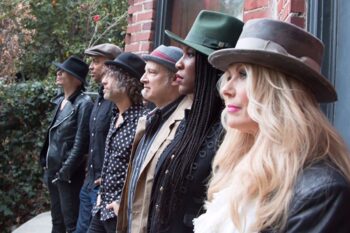
So, I centre my track of it that I’d started in the right key and everything and for her to lay her vocal over my vocal. She goes, ‘Ok but what about the yodelling part?’ She’s like, ‘I don’t really want to yodel.’ Exactly. You know there’s that yodelling part that’s a very old Irish kind of a thing. I said, ‘Don’t worry, don’t worry we don’t have to yodel.’ I figured I’d use it for a mandolin solo, ’cos I love my mandolin and I like the sound of the kind of sparkle that it brings to everything.
I like the extra sparkly stuff like that. But I’ve been criticized for my autoharp.
MD: Oh no. Why?
NW: I’ve had an autoharp fetish for years and whenever I can get one into a song you know, it’s like you and your autoharp. Get over it. I’m using my autoharp now.
MD: I was hoping to touch on your vocals and your singing style as well. Obviously, you’re more known from Heart fans for playing your guitar, but you’ve always sung along with Ann. I was listening… there’s always a lot history of people who were in bands together, some siblings, some not, who for some reason just sound like each other.
I’m wondering if it’s just because you’re together so long and what made me think of it was, in The Rising, the way you sang the word darkness just sounded like Ann so much in the inflection and whatever and I’m thinking well maybe that’s because you guys just hang out a lot and you’ve been with her forever so.
NW: They call that the, I think they call that the sibling blend. The Bee Gees had that various sibling singers. They kind of have a family sound.
MD: It started with the Everly Brothers.
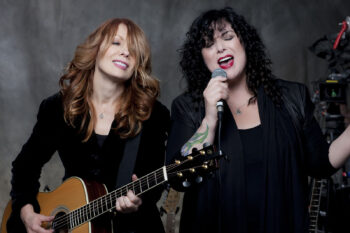
NW: The Everly Brothers, exactly. So, I think it’s cool because a lot of people say I can’t tell your speaking voice apart from Ann’s speaking voice either. But to me, our two voices are so dissimilar like I think it’s kind of impossible the way she can sing, like how high she can sing. And I have limits to where I can actually pull it off. I know my limits but she’s kind of, she has no issues with range or anything like that, even today.
MD: That’s amazing.
NW: It’s fun to be the main singer on an album like this because I’d kind of been relegated to the once or twice per album singer thing. And I enjoy it. So, and I gave myself a hall pass. Like ok, I don’t have to prove anything in a Heart context on this album. I could just tell my stories.
That’s basically what Ann advised me one time I was trying to sing my butt off in the studio. And she’s like, ‘You’re trying too hard. Don’t worry about perfection. Stop trying to be perfect, just tell the story.’ And I’m like, ‘Oh, OK. that makes a lot of sense.’ There’s a lot of great musicians who can sing who aren’t known for being great singers like Bob Dylan. Give myself a little break on that one.
MD: You’ve done well.
NW: Well, thanks.
MD: You’re not able to perform, what are the plans next? Are you able to do some shows or what’s on the cards?
NW: Yeah, just let the dogs out. Yeah, the first thing I want to do is a show with Liv Warfield and the same band I recorded with, the Heart band really. In Seattle on July the ninth with the Seattle symphony in a beautiful hall called Benaroya Hall – where we did the Christmas show where Sammy showed up. It’s a gorgeous wooden, built for sound performance hall with a big pipe organ in the back. It’s one of those places, it’s super magical.
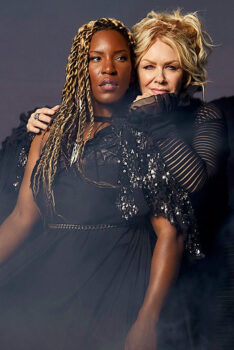
I can duet with Liv, and I can also do a bunch of Heart material. She can do those pitches, she has the range for that. So we’ll do about seventy five minutes, a few of the new things and the Heart things. Familiar things as well.
And then there’s also a big offer from LiveNation for Heart to go out in 2022. So yeah, hopefully all of the above is possible. Kind of like – we could get back to that place again where we could have real concerts again!
MD: They’ve just opened up a bubble between us and Australia so that’s kind of interesting because up until very recently it was just New Zealand only so we’re trying to get, and then of course one case of Co-vid will break out somewhere in Sydney or something and suddenly this little bit is cut off so they’re working through it, it’s a process.
NW: This year is a process. It’s been over a year already for us too. California is a really good place to live right now. But there’s a lot of places where people forget that there were other pandemics in the past and they don’t think it really applies to them. But what about polio? What about AIDS? What about all the other things that everybody got vaccinated for right? It’s real interesting how political it became and then unnecessarily politicised.
MD: Once it got politicised it was all over, there was no discussion anymore. It was just like I’m on this side, you’re on that side.
NW: it’s an interesting conundrum, it’s a predicament.
MD: That’s quite alright. I mean it’s kind of uniting everybody, here I am in New Zealand and you’re in California and everybody’s going through the same thing. I talk to somebody in England or Czech Republic or whatever and they’re all dealing with it in their own way.
MD: Well, thank you for spending time talking to me about your new album.
NW: Well, thank you so much. I really appreciated the help with the album too and really fun to talk to you too.